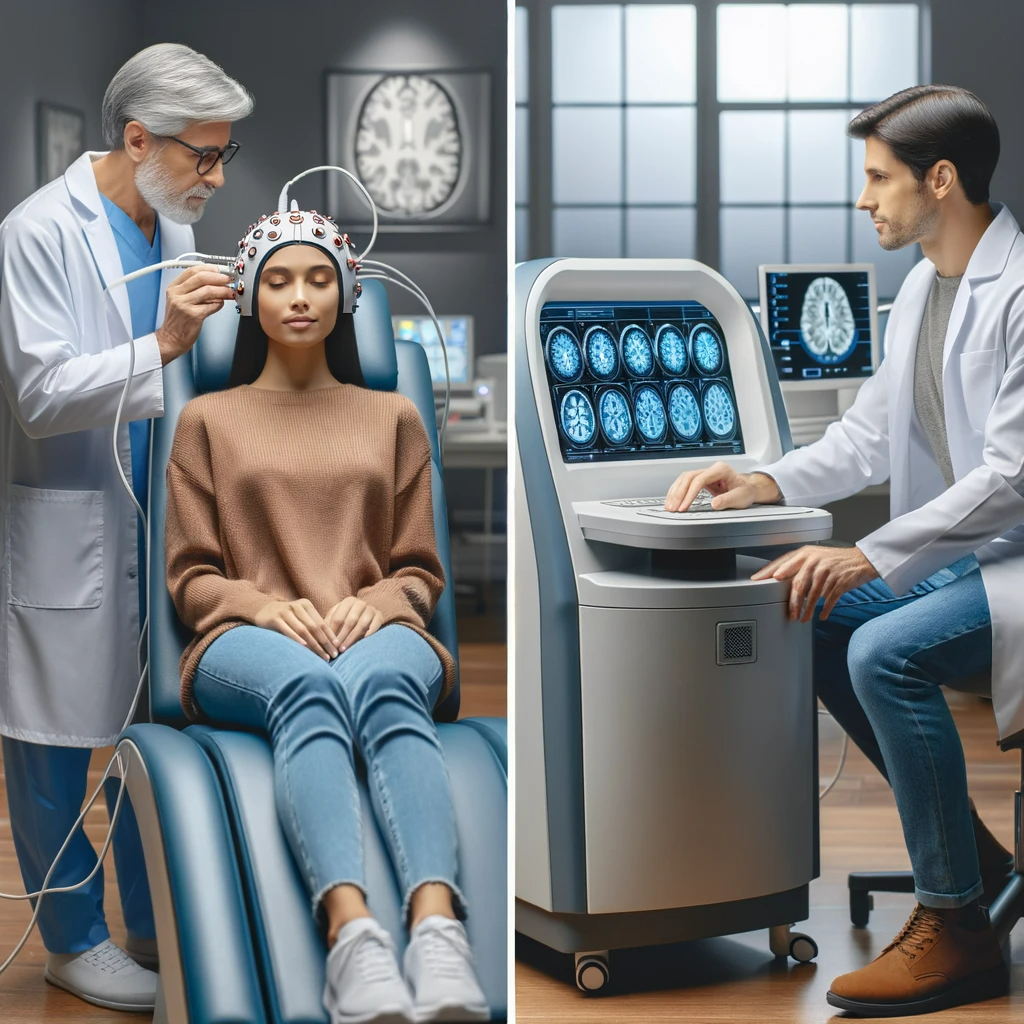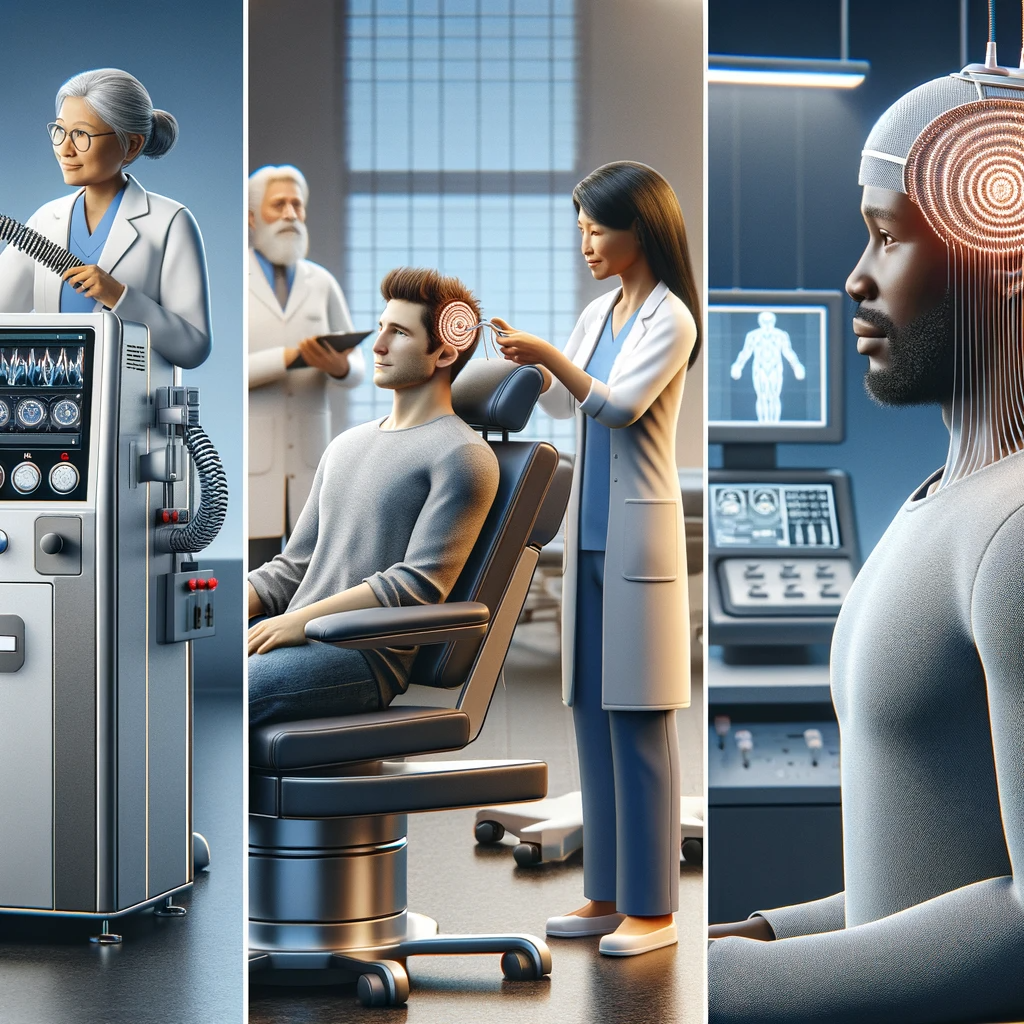- Mon-Fri 10am-18:30pm
- Call Us: 44 739 111 2283
- Email: info@medilifeclinic.co.uk
TMS Therapy
- Home
- Services Details

Transcranial Magnetic Stimulation
Transcranial Magnetic Stimulation (TMS):7 TMS therapy for autism is a non-invasive procedure that stimulates the cells in parts of the brain by delivering electromagnetic pulses using an electromagnetic coil. These pulses can control brain activity in specific regions, potentially returning them to normal. Restoring the stability and balance in the brain helps reduce symptoms associated with the condition.
How İt Works
Transcranial Magnetic Stimulation, or TMS, is a non-invasive alternative therapy that uses electromagnetic fields to activate brain regions that aren’t functioning well. A small coil is positioned over the head throughout the treatment. Without obstructing the scalp and bone, the magnetic field produced by the coil’s electric current can influence the activity of the nerve cells. In addition, the magnetic pulses’ position, magnitude, and frequency affect the magnetic stimulation.Your child’s head will be pressed against an electromagnetic coil frequently turned on and off, creating stimulating pulses. This causes a tapping or clicking sound for a short period before pausing. The tapping feeling will also be felt on the forehead, a procedure known as mapping.By targeting these specific brain regions, TMS for autism can:
- Decrease the repetition of actions
- Deal with irritation or depressive signs
- Enhance motor performance
- Address attention deficits
- Address additional ASD symptoms, including a lack of appetite or sleep
- Benefits of TMS include:

How Will I Know TMS Treatment for Autism is Working?
When it comes to TMS for autism, treatment does require a time commitment. Some individuals won’t see any changes until many weeks following treatment. For example, you may notice your child sleeping better and communicating more effectively.
Over the past few decades, autism has become increasingly more common in young children than it ever was before. Although it is a livable disorder to have, there are many symptoms that come along with it, including behavioral disturbances, having a hard time learning new things and comprehending them, delay in speech, and many more developmental issues that can be challenging for a young kid growing up.
Transcranial magnetic stimulation, or TMS for short, has had revolutionary results on autism in both young children and adults. Even though it has yet to be approved by the Food and Drug Administration (FDA), TMS is on the road to improving the lives of many people that suffer from autism spectrum disorder with a non-invasive treatment that targets the parts of the brain that autism affects.
What is Autism?
Autism can be many different things combined into one. What we mean is that autism can affect many different motor skills, developmental skills, learning skills, and more in a child. With early signs showing as soon as a child turns two or three, autism spectrum disorder (ASD) can be shown through issues and challenges such as social skills, nonverbal communication, speech delays, and even repetitive behavior.
What Are the Symptoms of Autism?
There are many ways for both parents and doctors to identify the early signs of autism in children. It can be the littlest things that throw them off such as a minor change in routine, or they have a lack of eye contact, little to no interest in other children or caretakers, and even speech problems, or the lack there of in speech. Besides lack of eye contact, little to no interest in other children and caretakers, speech problems, and even being upset over minor routine changes, there are many symptoms, or issues that children with autism face. These can include abnormal body posture or facial expressions, behavioral disturbances, struggling to comprehend what they’re learning, lack of empathy, repeating words or phrases, social withdrawal, and much more.
Subscribe Now
Get our latest news & update regularly